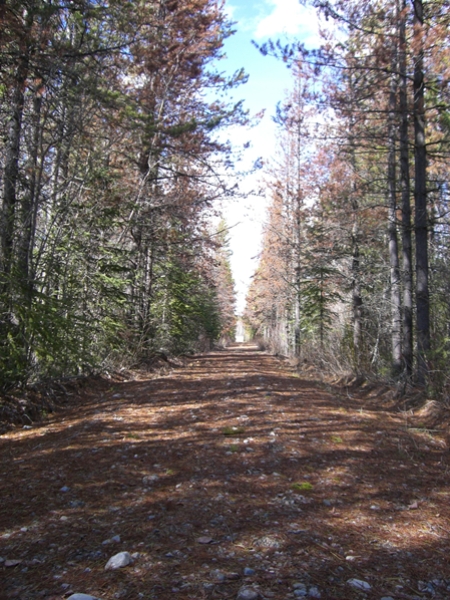Red Road
By 250 News
Sunday, May 06, 2007 04:33 AM

The scene evokes thoughts of a beautiful country road.
The reality is the red earth is not earth at all.
This gravel road is covered by a blanket of red needles that have fallen from the lodgepole pine trees, victims of the mountain pine beetle.
Previous Story - Next Story
Return to Home








